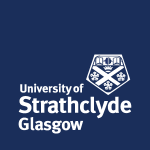 Strathclyde Institute for Genealogical Studies is pleased to announce the call for presentations for a conference: ‘Advancing genetic genealogy: how the past is informing the present through revolutions in genetic research’.
Strathclyde Institute for Genealogical Studies is pleased to announce the call for presentations for a conference: ‘Advancing genetic genealogy: how the past is informing the present through revolutions in genetic research’.
Date and Place of Conference
June 7-8, 2024, University of Strathclyde, Scotland and hybrid access
Guest Speakers
- Dr Tom Booth - Francis Crick Institute
- Michelle Leonard - Genes & Genealogy and the Fromelles Genealogy Project
- Debbie Kennett - University College London
- Jonny Perl - DNA Painter
- Dr Karen Miga - The Miga Lab at University of California Santa Cruz and the T2T Consortium
- Dr Pontus Skoglund - Ancient Genomics lab at Francis Crick Institute
Conference Call for Presentations
The Strathclyde Institute for Genealogical Studies (SIGS) will hold an international academic genetic genealogy conference in Scotland at the University of Strathclyde, June 7-8, 2024. The conference will be hybrid with some events in person only, including DNA testing lab demonstrations and an evening reception. On June 6, a separate symposium on investigative forensic genetic genealogy will be held by the University’s Forensic Science department.
The conference will be interdisciplinary in nature, with a particular focus on the themes of autosomal DNA and Y-DNA, as well as on bioarchaeology, genetics and investigative genetic genealogy, emphasising their importance and value to the field of genetic genealogy. Presentations should be aimed at an audience with an intermediate to advanced level of knowledge and understanding.
This call for presentations seeks proposals which will tend to cover the more practical application of genetic genealogy, to supplement the more academic based keynote presentations, although more academic proposals will be considered.
Speakers from a variety of disciplines and backgrounds are invited to share their experiences and thoughts around the following themes:
- Autosomal DNA
- Y-DNA
- Bioarchaeology
- Genetics
- Investigative genetic genealogy
Proposals out with these themes will also be considered.
Recordings of the presentations will be made available for two months to conference participants.
Submission guidelines
The conference committee invites proposals for individual or co-presented presentations. Presentations can be 10 or 20 minutes in length and time will be set aside for questions and answers. Proposals must be submitted via email by January 08, 2024. Acceptance decisions will be sent out by end of January 2024.
Please submit an abstract (200-300 words), the time length desired (10 or 20 minutes) and a biographical note (100 words) for each presenter. Provide information on previous experience with presenting at conferences or other events.
Hybrid Option
We are planning for a limited number of slots for remote presentations in a hybrid setup at the conference. When submitting your abstract to claire.mcconnell@strath.ac.uk, please indicate that a ‘remote presentation will be required’. If you have any questions regarding this hybrid option, please email claire.mcconnell@strath.ac.uk .
Deadline for submissions: January 8, 2024
Please submit your abstract to claire.mcconnell@strath.ac.uk
About the Advancing Genetic Genealogy conference and SIGS
The Strathclyde Institute for Genealogical Studies was established in 2022 to bring together a growing network of individuals and organisations to share knowledge and build a thriving academic genealogy community for all. Learn more about our genetic genealogy research projects, courses and events at https://www.strath.ac.uk/studywithus/centreforlifelonglearning/genealogy/ .
Speakers at the conference are required to register and pay for attendance. (attendance awards for students tbc)
Contact email: claire.mcconnell@strath.ac.uk
 Latest News Articles
Latest News Articles Do you have an RSS newsreader? You may prefer to use this newsletter's RSS feed at:
Do you have an RSS newsreader? You may prefer to use this newsletter's RSS feed at: